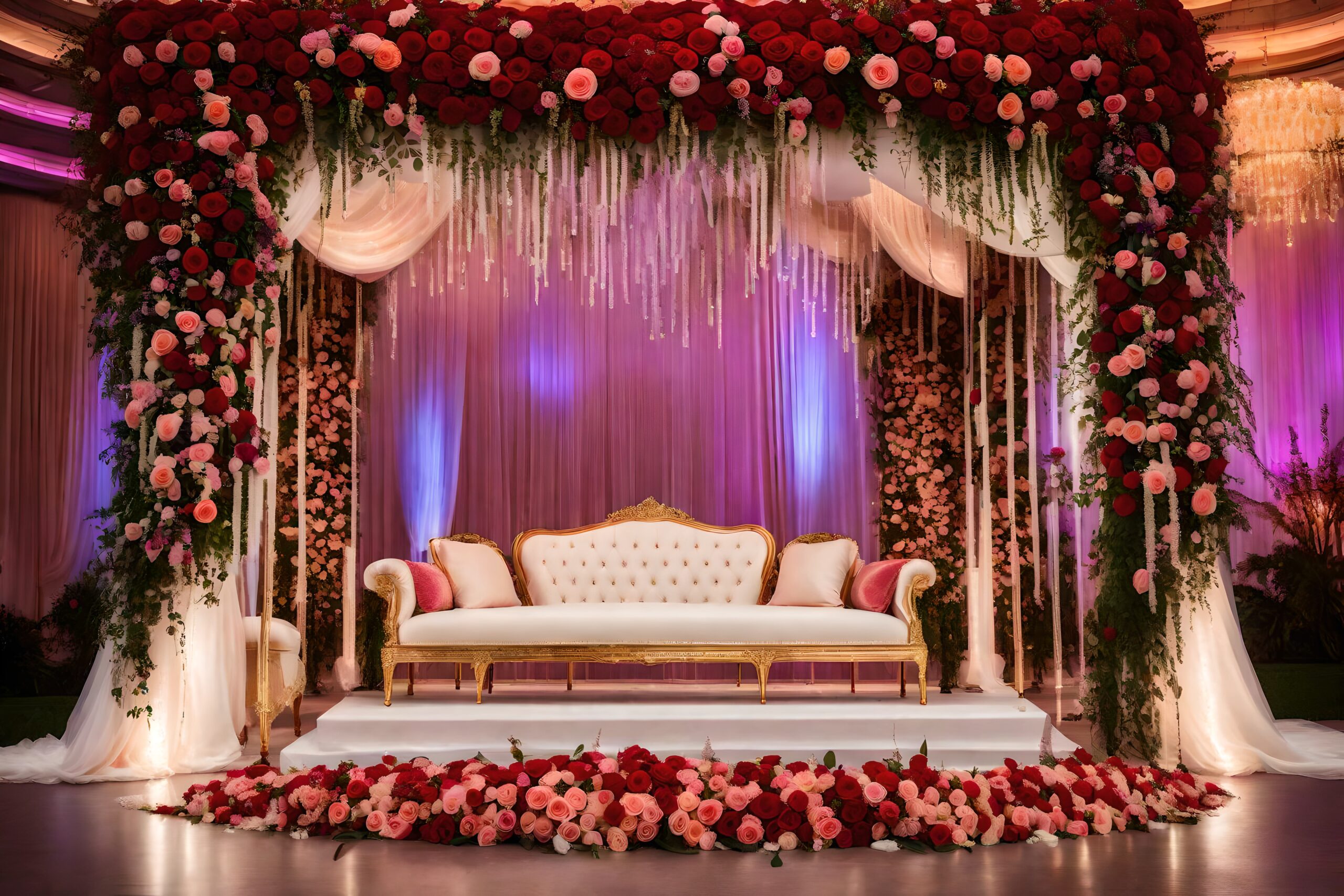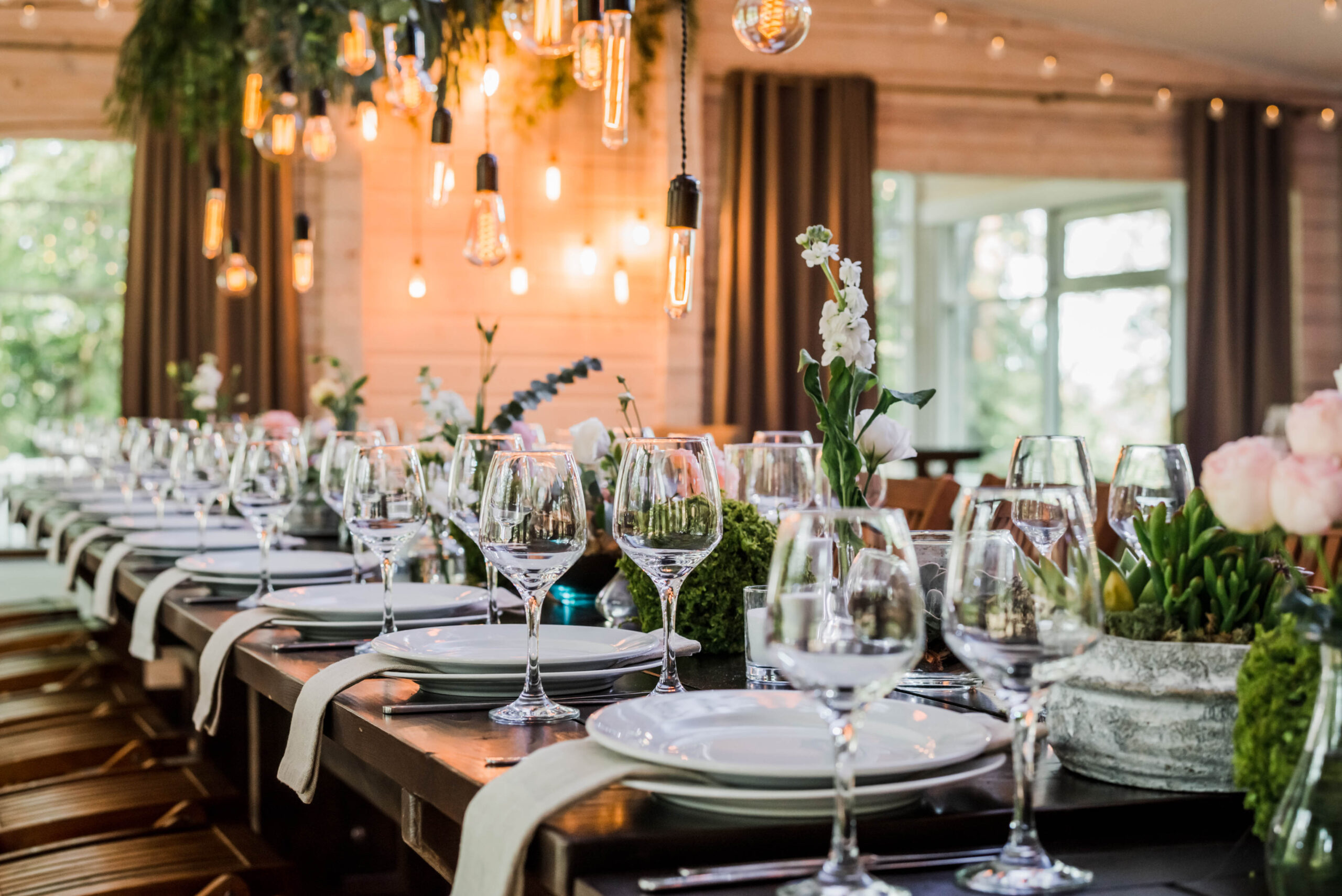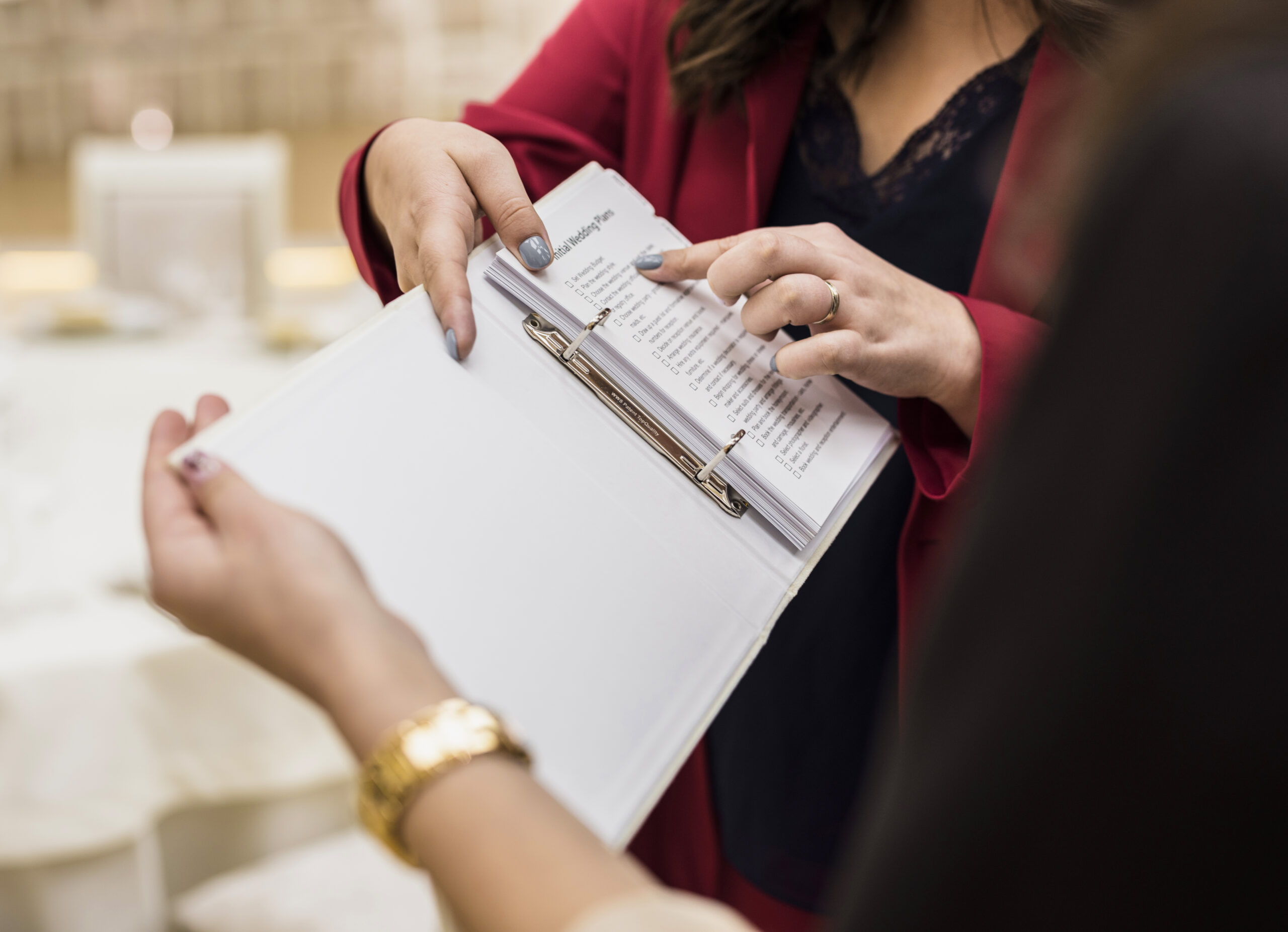Want to build your career as a wedding planner
Planning a wedding involves an array of decisions, from selecting the perfect gown to curating a delectable menu. However, no other aspect captures the essence of the event quite like the decor. As we enter 2024, new trends emerge, offering couples a plethora of options to translate their vision into reality. In this article, we will explore the most captivating trends that are shaping wedding decor this year.
Understanding 2024 Wedding Decor Trends
Wedding decor trends have always been subject to change, continually embracing new ideas and concepts. In 2024, we will witness a significant shift in aesthetics, bringing forth a fresh approach that blends classic elegance with modern elements. This harmonious fusion creates a timeless ambiance that will be remembered for years to come.
Let’s delve into the key elements that define 2024 wedding decor and discover how each aspect contributes to the overall beauty and charm of the occasion.
Let’s delve into the key elements that define 2024 wedding decor and discover how each aspect contributes to the overall beauty and charm of the occasion.
The Shift in Wedding Decor Aesthetics
Gone are the days of extravagant and opulent wedding decor. The trends of 2024 lean towards a more understated elegance and refined simplicity. Couples are embracing minimalism and opting for clean lines and unadorned spaces, allowing each carefully chosen element to speak for itself. This shift towards a more minimalist aesthetic creates a serene and intimate atmosphere that becomes the perfect backdrop for love and celebration.

Key Elements of 2024 Wedding Decor
When it comes to designing a dream wedding in 2024, attention to detail is key. Here are the essential elements that define this year’s wedding decor trends:
- Textures: Incorporating various textures, such as velvet, silk, and natural fabrics, adds depth and richness to the overall design. From luxurious table linens to intricately textured wedding invitations, the careful selection of texture enhances the sensory experience for guests.
- Artisanal Touches: Couples are embracing the charm of handmade and artisanal details. Incorporating handcrafted elements, such as custom-made ceramic dinnerware or bespoke glassware, adds a personal touch and elevates the overall aesthetic.
- Negative Space: Creating a sense of openness and breathing room becomes crucial in 2024 wedding decor. Embracing negative space allows each element to shine, preventing overcrowding and ensuring a balanced and harmonious design.
- Natural Elements: Connecting with nature remains a strong theme in wedding decor, with couples incorporating organic materials like wood, stone, and greenery. These natural elements infuse the space with an earthy and calming feel.
Another key element that defines 2024 wedding decor is the use of innovative lighting techniques. Lighting plays a crucial role in setting the mood and enhancing the overall ambiance of the celebration. In 2024, couples are exploring unique lighting concepts, such as fairy lights draped from the ceiling to create a magical and ethereal atmosphere. Soft, warm lighting is also favored, as it creates a cozy and intimate feel for the guests.
Furthermore, personalized signage has become a popular trend in 2024 wedding decor. Couples are incorporating customized signs throughout the venue, showcasing meaningful quotes, love stories, or even fun facts about their relationship. These personalized touches not only add a personal and sentimental touch to the decor but also serve as conversation starters for guests, sparking connections and creating a warm and inviting atmosphere.
Furthermore, personalized signage has become a popular trend in 2024 wedding decor. Couples are incorporating customized signs throughout the venue, showcasing meaningful quotes, love stories, or even fun facts about their relationship. These personalized touches not only add a personal and sentimental touch to the decor but also serve as conversation starters for guests, sparking connections and creating a warm and inviting atmosphere.

Popular Color Schemes for 2024
While soft pastels have long been a favorite choice for weddings, 2024 introduces bolder and deeper color palettes for couples seeking to make a statement. Rich jewel tones like emerald green, sapphire blue, and amethyst create a sense of opulence and grandeur, while muted earthy tones like terracotta and mustard yellow exude warmth and sophistication.
Additionally, monochromatic themes showcasing shades of a single color, such as variations of blush or navy, have gained popularity for their timeless elegance and versatility.
Exploring the realm of color psychology further, we find that each hue carries its own unique significance and impact on the human psyche. For example, the regal hue of purple is often associated with luxury, creativity, and wisdom, making it a popular choice for couples aiming to add a touch of sophistication and mystique to their wedding decor.
Additionally, monochromatic themes showcasing shades of a single color, such as variations of blush or navy, have gained popularity for their timeless elegance and versatility.
Exploring the realm of color psychology further, we find that each hue carries its own unique significance and impact on the human psyche. For example, the regal hue of purple is often associated with luxury, creativity, and wisdom, making it a popular choice for couples aiming to add a touch of sophistication and mystique to their wedding decor.
The Psychology of Color in Wedding Design
Colors evoke feelings and emotions, making them powerful tools to set the overall atmosphere of a wedding. For instance, vibrant shades like fiery reds and sunny yellows symbolize energy and passion, while soft pastels convey a sense of delicacy and romance.
When selecting the color palette for their wedding decor, couples should consider the emotions they want to evoke in themselves and their guests. Understanding the psychology of color allows them to craft a truly immersive experience that resonates with everyone present.
When selecting the color palette for their wedding decor, couples should consider the emotions they want to evoke in themselves and their guests. Understanding the psychology of color allows them to craft a truly immersive experience that resonates with everyone present.
Innovative Materials in Wedding Decor
As couples become more conscious about sustainability and strive to create unique experiences, innovative materials are gaining popularity in wedding decor. Let’s explore two distinct paths in this evolving landscape.
Wedding decor has evolved beyond traditional norms, with couples now seeking out materials that not only enhance the aesthetic appeal but also align with their values and beliefs. The use of innovative materials not only adds a personalized touch to the celebration but also sets the tone for a memorable event that reflects the couple’s individuality.
Wedding decor has evolved beyond traditional norms, with couples now seeking out materials that not only enhance the aesthetic appeal but also align with their values and beliefs. The use of innovative materials not only adds a personalized touch to the celebration but also sets the tone for a memorable event that reflects the couple’s individuality.

Luxury Materials for High-End Weddings
On the other end of the spectrum, luxury weddings embrace high-end materials that exude elegance and opulence. From shimmering metallic accents to luxurious silk drapes, each element is carefully curated to create an extravagant ambiance that leaves a lasting impression.
High-end weddings are a symphony of luxury materials that elevate every aspect of the celebration, from the exquisite floral arrangements to the lavish table settings. The use of premium materials such as crystal chandeliers, velvet linens, and gold-plated cutlery creates a sense of grandeur and sophistication that resonates with couples who seek a truly opulent experience on their special day.
High-end weddings are a symphony of luxury materials that elevate every aspect of the celebration, from the exquisite floral arrangements to the lavish table settings. The use of premium materials such as crystal chandeliers, velvet linens, and gold-plated cutlery creates a sense of grandeur and sophistication that resonates with couples who seek a truly opulent experience on their special day.
Lighting and Atmosphere in 2024 Wedding Decor
In 2024, the critical role of lighting in setting the desired ambiance becomes even more apparent. It goes beyond mere functionality and serves as a creative tool to enhance the overall wedding experience.
When considering the lighting for a wedding, it’s essential to understand the impact it can have on the mood and atmosphere of the event. Lighting can evoke emotions, create focal points, and highlight key elements of the decor, making it a crucial aspect of the overall design.
When considering the lighting for a wedding, it’s essential to understand the impact it can have on the mood and atmosphere of the event. Lighting can evoke emotions, create focal points, and highlight key elements of the decor, making it a crucial aspect of the overall design.
The Impact of Lighting on Wedding Ambiance
Properly executed lighting design can transform a space, taking it from ordinary to extraordinary. Soft and warm lighting adds warmth and intimacy to the venue, while dramatic lighting installations create a sense of grandeur and awe. By utilizing different lighting techniques, couples can curate an ambiance that aligns perfectly with their vision.
Moreover, lighting can also play a practical role in guiding the flow of the event. Strategic placement of lights can help direct guests’ attention to specific areas such as the altar, dance floor, or dining tables, ensuring that the focus remains where it’s intended throughout the celebration.
Moreover, lighting can also play a practical role in guiding the flow of the event. Strategic placement of lights can help direct guests’ attention to specific areas such as the altar, dance floor, or dining tables, ensuring that the focus remains where it’s intended throughout the celebration.
Creative Lighting Techniques for Weddings
From fairy lights and suspended bulbs to romantic candlelight, innovative lighting techniques take center stage in 2024 wedding decor. Intertwining strings of twinkling lights through greenery, suspending chandeliers, or using strategically positioned candles are just a few examples that create a magical and enchanting setting.
Additionally, advancements in lighting technology have opened up a world of possibilities for couples looking to make a statement with their wedding decor. LED lights, color-changing fixtures, and interactive lighting elements allow for dynamic and customizable setups that can adapt to different moments of the celebration, from the solemnity of the ceremony to the liveliness of the reception.
Additionally, advancements in lighting technology have opened up a world of possibilities for couples looking to make a statement with their wedding decor. LED lights, color-changing fixtures, and interactive lighting elements allow for dynamic and customizable setups that can adapt to different moments of the celebration, from the solemnity of the ceremony to the liveliness of the reception.
Floral Arrangements and Their Evolution in 2024
A wedding’s floral arrangements carry symbolism, representing the couple’s love and commitment. In 2024, we witness a fascinating blend of traditional and contemporary floral designs.
The Return of Classic Floral Designs
In the quest to merge tradition with modernity, classic floral designs make a triumphant comeback in 2024. Couples are opting for timeless arrangements featuring lush blooms like roses and peonies, artfully arranged in elegant cascades and centerpieces.
Modern Twists on Traditional Floral Arrangements
To infuse a contemporary touch, couples are embracing unconventional blooms like protea or exotic orchids and incorporating unexpected elements like feathers or succulents into their arrangements. These modern twists on traditional floral designs add an element of surprise and uniqueness to the overall decor.
As we explore the trends shaping wedding decor in 2024, it becomes evident that couples have an abundance of options to create their dream weddings. Whether it’s embracing minimalist aesthetics, experimenting with bold color schemes, or incorporating innovative materials, each choice contributes to an unforgettable experience for all. By thoughtfully curating each element of their decor, couples can transform their wedding day into an enchanting celebration of love and cherished memories.
As we explore the trends shaping wedding decor in 2024, it becomes evident that couples have an abundance of options to create their dream weddings. Whether it’s embracing minimalist aesthetics, experimenting with bold color schemes, or incorporating innovative materials, each choice contributes to an unforgettable experience for all. By thoughtfully curating each element of their decor, couples can transform their wedding day into an enchanting celebration of love and cherished memories.









